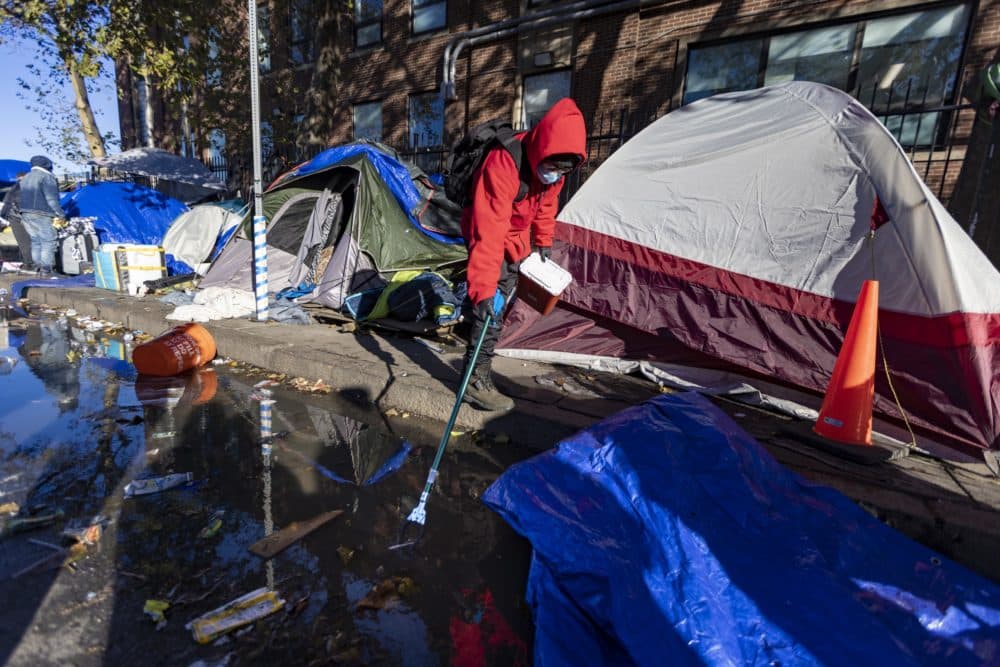Advertisement
Wu outlines plans to clear Boston tent encampment this week

Boston Mayor Michelle Wu said several efforts were underway to remove tents this week from a large encampment near the intersection of Massachusetts Avenue and Melnea Cass Boulevard, the epicenter of the region's opioid epidemic.
The mayor said at a press briefing Monday morning that many of the tents will be moved by Wednesday, Jan. 12 — the deadline she set last month to remove tents and instead direct the people living in them to transitional housing and other social services.
"This effort to remove the encampments will take more than one day, but the efforts will begin in earnest on Wednesday," Wu said at the press conference.
A survey the city conducted last month indicated that 145 people were living in tents near the intersection often called "Mass. and Cass." As of Monday, 83 people had been placed in housing or transitional housing space, according to Wu, who added the city has secured beds for the remaining 62 people identified in the survey. She said city workers were reaching out to those living in the encampment to get people into housing, especially with frigid temperatures expected this week.
"The encampments that we see and that some individuals have been living in for a number of years at this point are not a safe or healthy place for anyone to be living," Wu said. "There's no heat, no running water, poor sanitation. We've seen a number of fires because folks are trying to stay a little bit warm with propane tanks. We have seen ongoing issues around frostbite and hypothermia as the temperatures drop. And so we're really approaching past the point of urgency here."
The city posted notices on tents last week that the area would be cleared on Jan. 12. For weeks, Boston officials have worked with other agencies and the state to create housing space for those in the encampment.
Among the beds created were cottages on the Lemuel Shattuck Hospital campus, rooms at the enVision Hotel in Mission Hill, cabins in Jamaica Plain and rooms at the Roundhouse hotel on Massachusetts Avenue, which is near the encampments.
Wu added that the city's homeless shelter on Southampton Street has repurposed some of its space to take in some people who are not sober. Sobriety is often a requirement for people looking to stay at most shelters.
Wu and members of her administration did not say what might happen if someone refuses to leave the encampment. However, the mayor said she wants to "avoid criminalizing" the tent removals. She also said there has been illegal activity and violence in the encampments, and Boston police will ensure safety in the area.
"We're acknowledging up front, right here, that this is one step," said Dr. Bisola Ojikutu, executive director of the Boston Public Health Commission "Failure of many systems — our health care system, our mental health system and our criminal justice system — that's what has led to these encampments, and these issues are not going to be fixed by Wednesday. We have a lot more work to do."
Last week, Wu and members of her administration visited Long Island, where the city still owns several buildings that used to house services for people struggling with homelessness, mental health issues and substance use disorders. The buildings were shut down in 2014 when the bridge to Long Island was abruptly closed because of safety issues. Wu said she is considering how to renovate the buildings for use as part of a long-term plan to deal with the homelessness, mental health and addiction.
